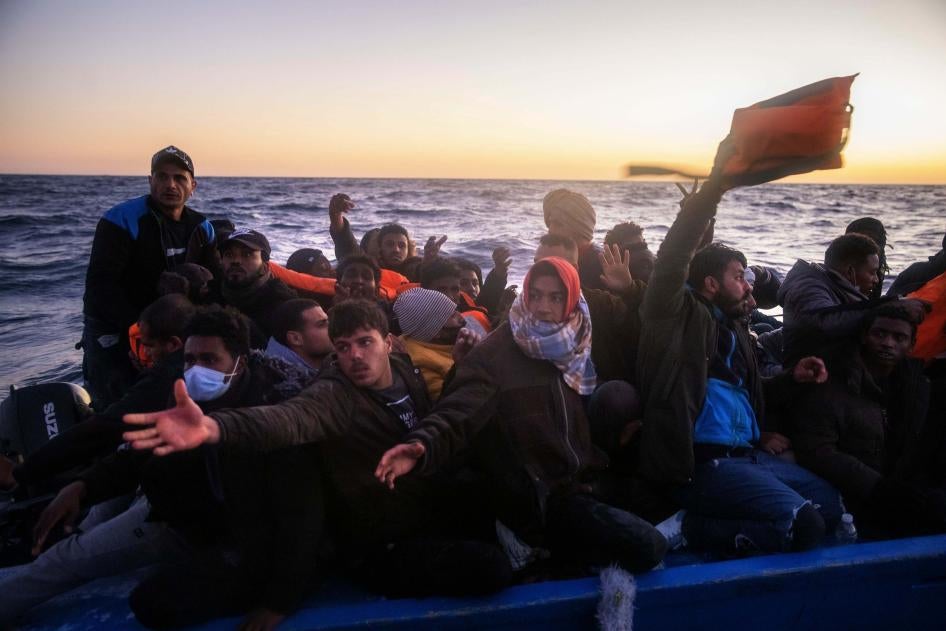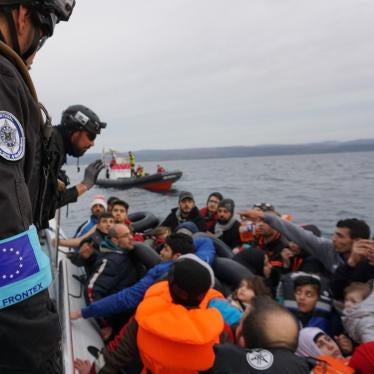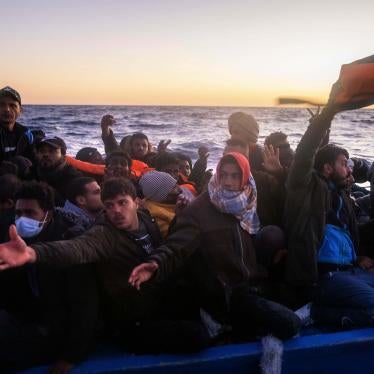A staggering number of people die at Europe's borders. Almost all of them are brown or Black. The majority drown or disappear at sea. Others suffocate in trucks, are run over by cars, or die of hypothermia. For many, the cause of death is unknown, as are their identities, and they lie in unmarked graves, if their bodies are recovered at all.
The International Organization for Migration's Missing Migrants project estimates that at least 22,748 people have died in the Mediterranean region since 2014; at least 848 were children.
This year, at least 1,465 people have died or were reported missing in the Mediterranean Sea, and at least 785 have died in the Atlantic Ocean as people try to reach the Spanish Canary Islands from the coast of West Africa.
People die at land borders too.
Polish authorities recorded the eighth death at its border with Belarus on 20 October, and the actual death toll may be much higher.
The Global Compact on Migration, a non-binding statement of principles adopted by most of the world's countries in 2018, commits governments "to save lives and prevent migrant deaths" by ensuring search and rescue and also by reviewing policies and laws that may "raise or create the risk" of people going missing or dying.
To Europe's shame, five of the 29 countries that did not adopt the compact are in the European Union. And today European countries and EU institutions are pursuing or proposing policies that endanger lives.
Not only have EU institutions and states abdicated their responsibilities for search-and-rescue operations in the Mediterranean, but their policies increase the risk of harm, including deaths at sea, by deputising Libya, withdrawing naval assets from high seas corridors where migrant boats are most likely to be in distress, and obstructing–even criminalising–non-governmental rescue groups.
In July, Italy renewed its funding to the Libyan Coast Guard, and the European Commission plans to deliver three new boats to the Libyan Coast Guard to increase their patrol capacity. Libyan authorities have intercepted more than 26,300 people and forcibly taken them back to Libya so far this year.
There is emerging evidence that Frontex, the EU's border agency, has directly and indirectly enabled these interdictions.
We will probably never know how many people have died because of reckless Libyan Coast Guard manoeuvers at sea but also due to pullbacks to almost certain detention in nightmarish conditions with risk of sexual violence, torture, forced labor, extortion, and death.
On October 8, guards opened fire on people protesting and attempting to escape from a detention center in Tripoli, killing six and injuring at least 24, in the latest episode of excessive force and violence that one UN official called "a regular occurrence" in Libyan detention centres.
Appalling UK proposals
Meanwhile, the United Kingdom government is pushing an immigration law overhaul that would, among other appalling proposals, allow UK border guards to push back to France boats carrying migrants and refugees, and exempt border guards from prosecution in the event someone dies.
Recently, 12 EU countries asked the European Commission to fund fences and walls at the bloc's external borders because a "physical barrier ... appears to be an effective border protection measure."
The evidence that border barriers actually prevent irregular entry over the long term is mixed to say the least. What is clear is that walls and fences divert people to more dangerous routes but can also directly result in loss of life and limb.
The letter also contains a thinly veiled nod at "legalising" pushbacks, at a time when EU countries are busy watering down an already modest proposal to set up independent monitoring mechanisms to prevent border violence and pushbacks.
This disregard for the lives of human beings on the move is the very opposite of who we aspire to be. At an absolute minimum, European countries should cease violent pushbacks at their borders, ensure robust search and rescue capacity at their sea and land borders, and cease enabling dangerous interdiction practices by Libyan and other forces.
European countries should also enforce accountability for abuses at European borders and preventable loss of life. More legal migration opportunities–for humanitarian purposes, work, study, the arts–and fewer punishing visa requirements could help avert dangerous irregular journeys.
Ultimately, European countries should reckon with their responsibilities for the deaths of so many people from Africa, the Middle East, and Asia at its borders. When the EU adopted its first anti-racism action plan last year, it pledged to address structural racism and mainstream an intersectional approach to countering discrimination in policymaking.
If they are serious about this effort, EU countries should reflect on the legacy of colonisation and enduring inequities underlying migration decisions and risks. It should take a hard, painful look at the impact of what the EU does, and doesn't, do along its outer edges and in its relations with other countries on the bodies and lives of Black and brown women, men, and children.










